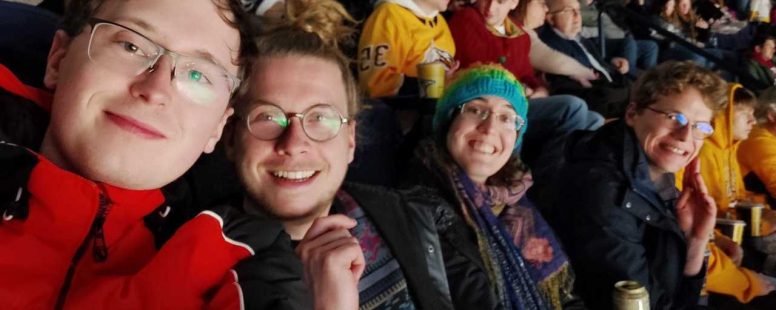Expression and purification of arrestin-3 for structural studies (Short Report by Emelyne Pacull; Feb. – April 2022)
My PhD research at Leipzig University focus on the Growth Hormone Secretagogue Receptor (GHSR), a receptor in our cell membranes involved in food intake and part of the G-protein coupled receptors (GPCRs) family, key targets of pharmacological drugs. More specifically, I am investigating the conformational changes of this receptor in the presence of its ligand ghrelin or other extra and intracellular partners, using solid state NMR. After having to cancel my exchange for the summer 2020 due to the coronavirus pandemic, I finally had the awesome opportunity to work in the lab of Prof. Dr. Vsevolod V. Gurevich from February to April 2022. The main goal of this exchange was to focus on a key intracellular partner of GHSR: Arrestin 3. Arrestins are involved in the internalization and the recycling of GPCRs and are the specialty of the Gurevich lab. Here, I got the chance to learn how to express and purify the arrestin 3-3A, a specific mutant of interest, under the supervision of Dr. Sergey Vishnivetskiy. Beyond this original project, I could try new expression systems like cell-free expression using rabbit reticulocytes and plan to investigate the phosphorylation and arrestin binding of my receptor thanks to the radioactivity equipment available in the lab. It was also a great opportunity to hear about the projects of my colleagues and to learn about very different techniques and topics, including work on mice.
During my stay in Nashville, I had the chance to live with 4 other students from Leipzig with whom I could explore the city and share that unique experience. Thanks to them, events were organized right upon my arrival. It was a really nice as it can be hard to meet new people in such a short time, especially after 2 years of pandemic. Together, we went hiking around the city, enjoyed the live music so easily accessible in Nashville and watched typical American games like baseball, ice hockey and football and experience the very specific atmosphere in the stadiums. I am grateful to the 4 of them for this shared time and friendship that we will take back with us to Germany.
I also had the chance to explore other cities such as New Orleans and San Francisco, to see raccoon, alligators and whales in the wild, and to learn so much about this country so different from Europe and its history. This exchange was a great educational and cultural experience, an amazing opportunity to learn valuable skills and connect with scientists from a world-renowned institution. I deeply thank the administrative members at Vanderbilt University, Universität Leipzig, and the Max Kade Foundation for making this experience possible within my PhD. I would definitely recommend this program to other PhD students.

